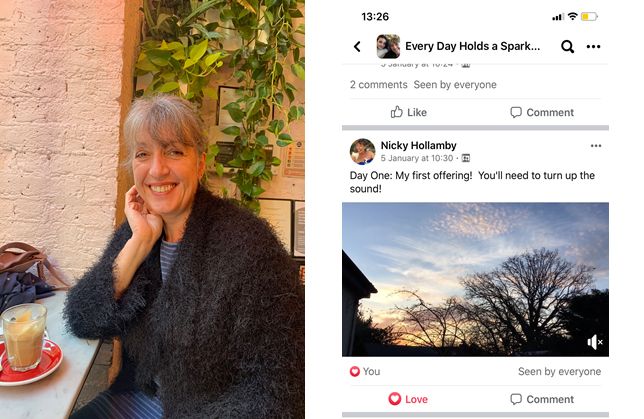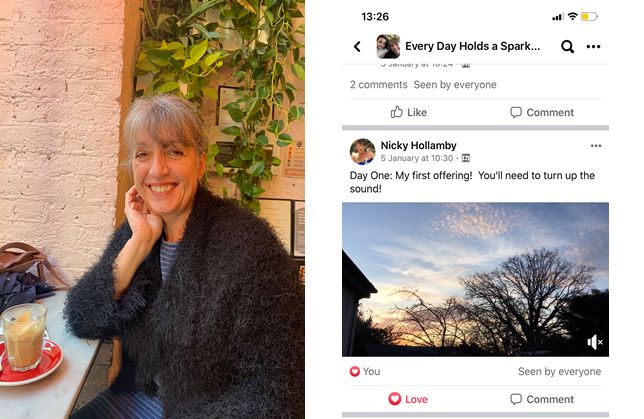By Mary Hollamby, Third Year Psychology
Recently, my mum invited me to join a Facebook group she’d made for the two of us called ‘every day holds a spark of joy’. The purpose of this page wasn’t a Marie Kondo clothes folding fan club, but a page to share a picture or video of something which had made us smile that day. I can’t lie, I love my mum, but at first I just rolled my eyes and thought: bless her, last week it was sage-ing the house (namaste), then forcing yourself to laugh when you wake up, and now this. But the more I think about it, the more I realise she’s on to something (I should have learned by now that mum’s are always right). Whilst basic, the principle of this idea may be essential to maintaining sanity, especially for those of us caught up in the stress of a uni workload.

In an effort to stop my mum worrying about me, I found myself constantly looking for things to post. Whilst on some days this was just a stupid TikTok I’d seen on twitter, on other days I’d stopped on the street and looked up to see a building or view I hadn’t before appreciated as I’d been too caught up in my own world. Ultimately, I realised appreciating small things was giving me a more positive outlook. I’m not a therapist, nor am I an example of perfect mental health, but I truly think changing how you think or what you focus on can have a big impact on your mental state.
Ensuring we appreciate the things that can make us smile feels more important than ever, when, regardless of your personal problems, the world around seems pretty hopeless. The news feels like a constant stream of tragic deaths on one end and the impending doom of climate change on the other, not forgetting a sprinkle of ignorant politicians in between. Essentially, it’s important we utilise the seemingly mundane joys to ground ourselves amongst the daily chaos, and remember what we’re thankful for and what it is that brings us positivity.
I now find myself more likely to take deliberate time out of my day to do things I know will ‘bring me joy’. For example, Bristol has some beautiful places to walk i.e., the Downs to the Suspension Bridge; and a quick coffee and a laugh with your friends, without the pre-text of assignments or revision, is always an easy way to boost yourself. Equally, if you find yourself overwhelmed every time you go on your phone start following some more positive accounts like the happy newspaper or @humansofny for some quick and easy access to joyful things.

Every now and again take time out of your day to do something you always used to love but don’t anymore because ‘you don’t have time’, for me that's going out for half an hour and taking some GCSE art level photos and not caring that I look like a bit of a knob.

Noticing the small things is hardly a new idea, with the emerging field of positive psychology placing increasing emphasis on the ‘Three Good Things Intervention’. In this practice participants are asked to keep track of any three good things that happened during the day and write these down before bed. Studies into its ability to boost well-being have consistently shown increased happiness levels for a variety of participants, from healthcare workers to those over 50. Therefore, it would appear taking a moment to be mindful of the good things we experience on a day-to-day, no matter how insignificant, can really help our general mindset.
Featured: Epigram / Mary HollambyFind a copy of The Croft Magazine in every issue of Epigram Newspaper!









